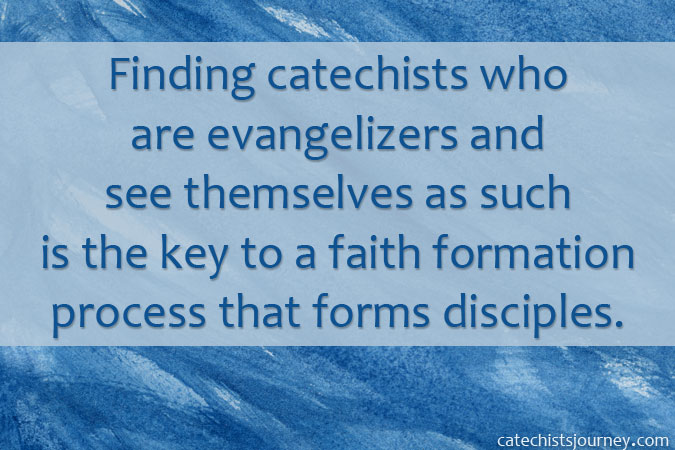 In ministerial circles, it is not uncommon to hear the phrase “Faith is caught, not taught.”The point of the phrase is that faith is something that involves more than just transmitting information. With that in mind, it might be helpful to know just what makes a message go “viral” – what makes a message “contagious.” Seeking answers, I recently read a very good book: Contagious: Why Things Catch On by Jonah Berger (Simon & Schuster) in which he identifies 6 ingredients needed to make a message go viral. Those of us in the catechetical ministry might consider reflecting on these ingredients as we look at how we proclaim the Gospel of Jesus and seek to evangelize.
In ministerial circles, it is not uncommon to hear the phrase “Faith is caught, not taught.”The point of the phrase is that faith is something that involves more than just transmitting information. With that in mind, it might be helpful to know just what makes a message go “viral” – what makes a message “contagious.” Seeking answers, I recently read a very good book: Contagious: Why Things Catch On by Jonah Berger (Simon & Schuster) in which he identifies 6 ingredients needed to make a message go viral. Those of us in the catechetical ministry might consider reflecting on these ingredients as we look at how we proclaim the Gospel of Jesus and seek to evangelize.
- A message will go viral if it makes people look good/sound interesting. People tend to share information with others if that information makes them “look good” (sound intelligent) to others. This means that the information must be unusual, extraordinary, and worthy of notice. Question: what are you teaching today that will make your learners want to share because the information makes them “look good?”
- A message will go viral if it is related to “triggers” that keep it in the forefront of people’s minds. In other words, the message needs to be connected to images or events that occur in everyday life so that people can’t avoid “bumping into it.” Think of Jesus’ parables that are connected to images from the everyday life of his listeners. Berger says, “top of mind = tip of tongue.” Question: how is what you are teaching today related to everyday life?
- A message will go viral if it taps into an emotion that causes physiological arousal. Think of messages that provoke awe, amusement, excitement, anger, or anxiety. Cynical approaches feed on anger and anxiety to spread a message (as in “fire and brimstone” preaching). Our proclamation of the Gospel needs to provoke awe and excitment as well as righteous anger leading to works of mercy and acts of social justice. Question: What emotion does the message you are teaching today provoke?
- A message will go viral if it is public, visible, observable. When soemthing is observable, it is easier to imitate and, in general, people tend to conform to what others are doing. Berger asserts that “behavior is public and thoughts are private” and “public visibility boosts word of mouth.” Notice how many people are talking about Pope Francis’ “behaviors” – taking the bus, paying his own hotel bill, washing the feet of inmates and women, etc. Also, think of the importance of the Works of Mercy in Catholic Tradition. Question: how does the message you are teaching today translate into observable behavior?
- A message will go viral if it has practical value. Messages go viral if they contain “news you can use.” People like to pass along practical, useful information. You’ll most likely share this post if you’ve found that it contains practical value! We pass along information that will save others money, time, or effort, or present them with a unique opportunity. As I typed this post, I heard a radio commercial for a Paul McCartney concert in Milwaukee and I immediately thought of who I should share the info with! Question: What practical value does the message your teaching today have?
- A message will go viral if it can be told in story form. Lessons that are encased in a story have a better chance of going viral simply because they are more interesting than basic facts. The most popular posts here on my blog are when I tell stories of my actual experiences of teaching! Again, think of Jesus’ parables and why they are so enduring. Question: How are you using story(ies) to convey the message you are teaching today?
Now, let’s see if you’ll share this post with someone else! 🙂





Thanks for pointing out this book, Joe. These six points offer a good lens through which to view our catechetical ministry. I do often wonder what is the “secret ingredient” that cuts through the static and makes catechesis stick. I doubt it’s one thing (other than the Holy Spirit!) and so it’s good to look at everything we can to increase the odds of reaching people so that our message will indeed catch on.
Thanks Tom. The Holy Spirit is always at work…it’s our responsibility to hoist our sails and harness that power!
Hi Joe,
I have already copied this wonderful article to share with my catechists as well as it will be in the folder to share with my new catechists this summer! Even though I no longer am in the classroom, these same principles apply as I speak and pray with my students prior to the students heading off to the classroom. Thank you Joe!
Thanks Darlene…it should make for some great conversation!
Proving that great minds do indeed think alike 🙂 my friend Jared Dees just posted about this same book! check it out: http://jareddees.com/remarkable-catholicism/#comment-1075
Thank you Joe for this article. i plan to print and share this with my co-teachers. I believe that teachers in Catholic schools should really “walk the talk” to be able to inspire! God Bless and more power1
Hi Joe! Do you have any material or resources such as test material to review our basic Catholic faith?
As a minister of welcome in my parish, I really believe that faith is caught and that we need our lives to show what we believe. I believe Pope Francis is a good example for all of us in the pastoral ministry that he has shown in the early days of his papacy. I plan to share this book with the other people on staff.
Thanks JoAnn!
I love stories and can heartily attest to #6. The Great Adventure Bible Timeline series from Ascension Press is based around the concept of the Bible as one great story of salvation. Jesus’ parables are all stories. Even the works and life of Jesus tells a story!
Well said, Lindsay!